All Over the Place
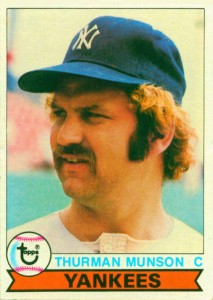
I Think the Hair Sealed the Deal for Me. IT WAS SPECTACULAR.
I became obsessed with baseball as a kid because of Burger King. I think it was 1979; for the Mighty Somers Clan BK was our go-to low-rent celebration place, the fast food restaurant that Mom and Dad took my brother and I to eat when we got the Honor Roll or won a Little League game or something like that. There weren’t many good pizza places, I don’t think there was a McDonald’s at the time. The only other restaurant that was even close to BK in importance for getting little kids excited was Arthur Treacher’s. Man, I miss Arthur Treacher’s. But to go to Arthur treacher’s we had to drive into (gasp) Union City, so that was much rarer.
Anyway, BK had a promotion giving away Topps baseball cards of the World Champion 1978 New York Yankees, and I got a few one time when Mom took us out to eat. And I was fascinated. The design of the cards, the photos, which were all super serious and seemed like they’d been taken without the players being aware — and the stats. Oh, the stats printed on the back.
This is why baseball is the go-to sport of soft white boys everywhere. It’s the closest thing to a role-playing game that’s still a manly sport.
I started watching the game, playing the game (really, really badly; I played like eleventy seasons of Left Out in Little League, and I can still hear the groans of my teammates when I stepped up to the plate for my inevitable pop foul), and collecting baseball cards. Google tells me those Burger King cards are worth a little something these days, though I imagine only if you actually took care of them and haven’t had them rubber-banded together in a shoebox in varying climate conditions for nearly 40 years.
Anyway, for a while baseball was part of my personality. I could quote stats. I listened to every single Mets game on the Radio in 1987. Every single game! I can still hear Bob Murphy in my sleep. I wore a baseball cap everywhere. My Dad used to get free Mets tickets in the early 1980s, and even though Shea Stadium was absolutely empty for some reason we still sat up in the weeds, getting nosebleeds. I played Rotisserie baseball and formed a computer game league with friends from High School where we drafted Hall of Fame players and played 16-game seasons against each other.
Today, not so much. As a middle-aged man, baseball has slowly receded from me. I can’t give a single reason; it’s a tasty melange of changing tastes, boredom with something I’ve explored pretty thoroughly, the altered aspects of the game over the years, and yeah, probably the scandals. Whatever, for a wide variety of reasons that may indeed include my general level of suckitude, I don’t pay close attention to baseball any more.
####
I think of this, strangely enough, because I’m a novelist. A novelist with a messy range of books and shorter works out there, including thrillers, mysteries, dysotpian sci-fi, urban fantasy, and some straight-up general fiction. In other words, my work doesn’t fit well into a single shelving category, and I do think that hurts me sometimes.
That’s also a function of evolving tastes and interests. When I first started writing, I was heavily inspired by epic fantasy, so that’s what I wrote. Much of my pre-college work is swords and sorcery, epic quests, magical talismans and such. In college I got into crime thrillers and mysteries, and then I went into a very pretentious phase where I read classic literature and thought I was capable of matching it. A little later I got back into speculative fiction but more on the sci fi end of things. I’m all over the place.
This isn’t unusual; most writers have a wide range of influences and a wide range of projects they’re interested in. And plenty of writers manage to publish in a variety of genres and still have great success. But I do wonder sometimes if my work isn’t too varied, making it hard for someone who loves, say, the cyberpunk sci fi of Avery Cates to jump over to the snarky dark comedy of Chum. Whereas if I published exclusively in one genre I might build more momentum with people, as they’d be able to check into new books without having to research what they’re getting into.
But of course, sort of like my interest in baseball, you get bored with stuff, don’t you? I explore a concept, an idea, a character, and sometimes that’s it: There’s no more there there for you personally. So you go looking for something more interesting. And you write a new book. And no one knows how in the world to market it.
####
I’ve always been suspicious of people who are, in turn, suspicious of change. Changing, evolving opinions, tastes, and beliefs are healthy. Dogmatic refusal to re-asses and re-evaluate is kind of boring and unimaginative. Why in the world would you like exactly the same things as when you were younger? I mean, when I was 25 I thought lite beer was great and buried my whiskey in mixers. It was a savage, unschooled time.
So I don’t think too hard about baseball, and I don’t miss it much. Unless you told me I’d sell a boatload of books if I started watching Mets games again, in which case I’m all in. Because poppa needs new shoes.

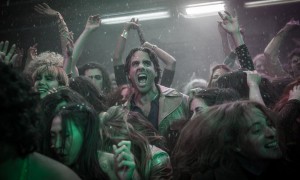

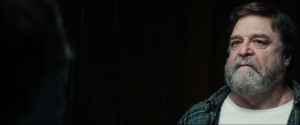
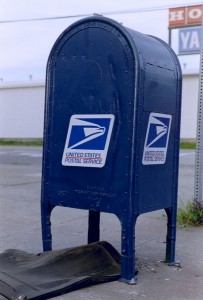

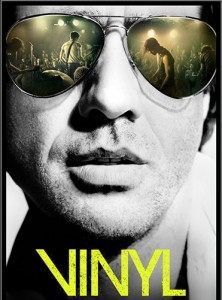
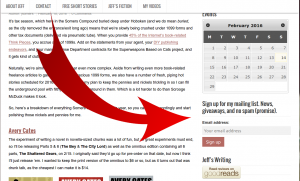 UPDATE: The giveaway is over, folks!
UPDATE: The giveaway is over, folks!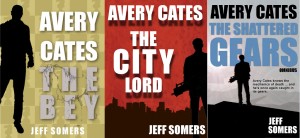 Okey dokey, kids: The great Avery Cates Short Story Experiment has come to a close (for now). Parts 5 and 6 of the digital shorts, The Bey and The City Lord are live as eBooks:
Okey dokey, kids: The great Avery Cates Short Story Experiment has come to a close (for now). Parts 5 and 6 of the digital shorts, The Bey and The City Lord are live as eBooks: